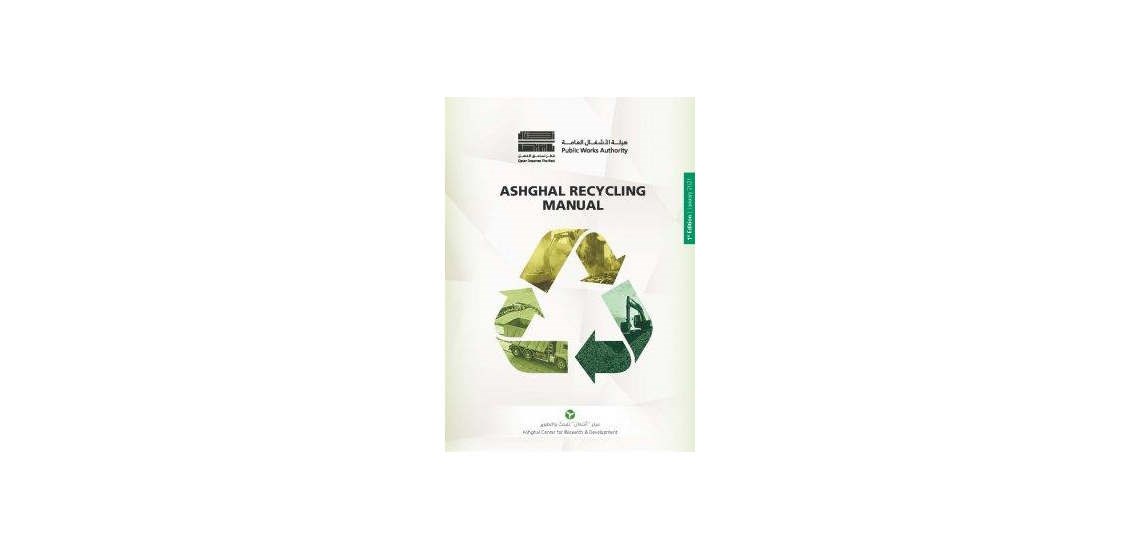As part of initiatives of the Qatari Public Works Authority (Ashghal) to use recycled materials in projects, Ashghal Research and Development Centre run by the Quality and Safety Department has prepared the Ashghal Recycling Manual, the first of its kind in the region.
Qatari Guide to Recycling
This manual is the result of three years of research, expertise, field tests and pilot projects implemented using recycled materials. The manual is to be considered a technical reference for engineers, consultants and contractors working on Ashghal projects, as well as for manufacturers and investors in the field of recycling. It also provides technical support for projects in achieving Ashghal‘s recycling strategy.
The importance of Ashghal Recycling Manual lies in providing the requirements for dealing with recycled materials in terms of sorting and storing to ensure quality, setting controls for producing recycled materials to ensure stability level of quality, encouraging investors in this field and providing a reference in the field of recycling to ensure continuous development as per increasing experiences in the field.
The manual contains specifications for materials produced from recycling reclaimed asphalt, crumb rubber produced from tyres, demolition and excavation waste, wadi aggregate and steel slag. The manual also includes methods of manufacturing recycled materials, sorting guidelines, quality control systems, methods of testing these materials, and permissible use rates to maintain quality and durability of projects.
Ashghal began to recycle rubber tyres and use them to produce bitumen modified with crumb rubber (CRMB), which helps in enhancing stability and durability of asphalt mixtures, increasing flexibility, reducing cracks, reducing noise on the roads, reducing financial cost of pavement work and reducing environmental pollution of landfills.
It is noteworthy that during 2020, Qatar produced 877 tonnes of bitumen modified with rubber crumb. As part of construction works of projects, Ashghal recycles concrete and materials extracted in excavation works, aggregates, and reclaimed asphalt for using in new road pavements. Thus, 100 per cent of the drilling materials of the Mesaimeer outfall and tunnel for surface water and rainwater project were recycled.


















